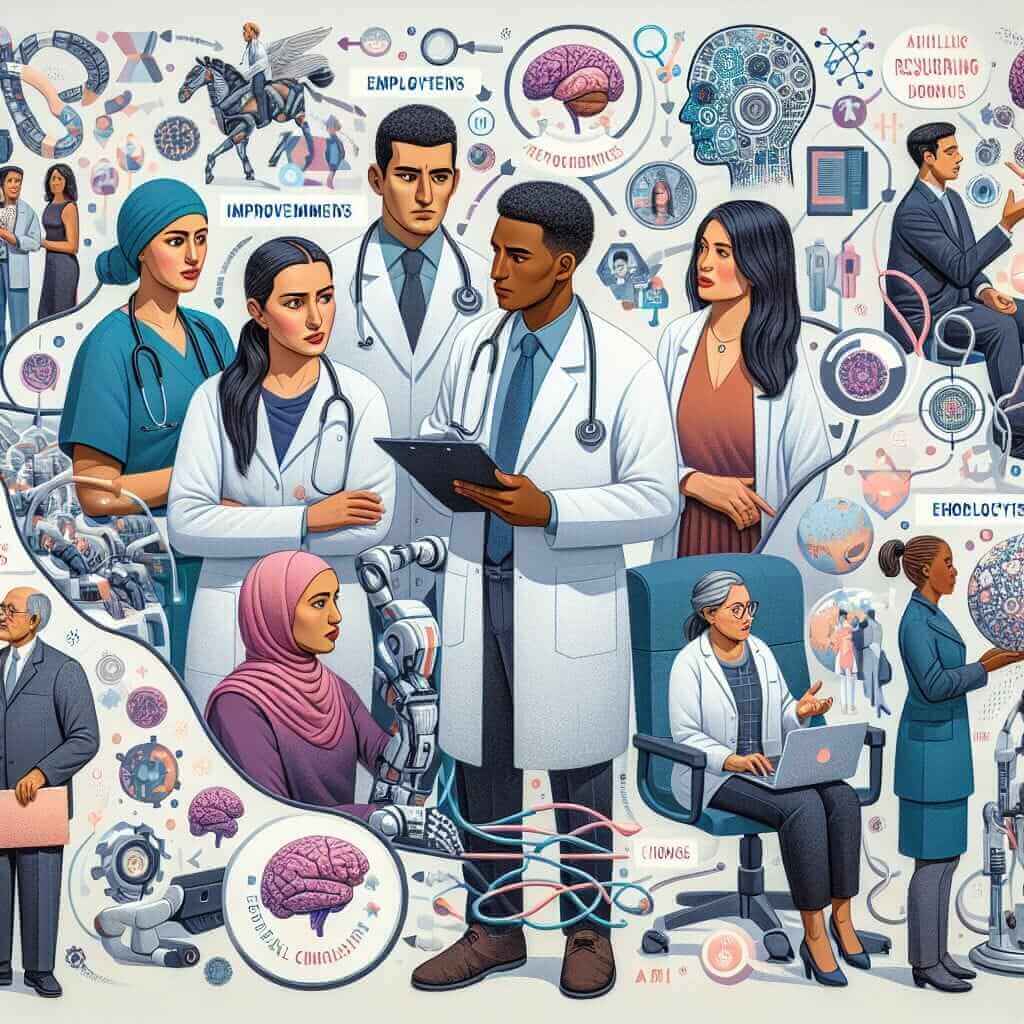Artificial intelligence (AI) is transforming various aspects of society, making it a significant topic for IELTS Reading tests. This article provides a detailed reading practice exercise focusing on the “Social impacts of artificial intelligence.” This practice aims to enhance your reading skills, vocabulary, and understanding of key concepts, helping you prepare effectively for the IELTS exam.
Introduction
The IELTS Reading section tests your ability to read and understand various types of texts. One prevalent topic is the social impacts of artificial intelligence, reflecting its growing significance. This topic has appeared in previous IELTS exams and is likely to reappear due to its relevance.
This article will provide an IELTS reading practice test centered around the social implications of AI, following the standard IELTS format. Additionally, it will include questions, detailed answers, common mistakes, vocabulary, and grammar tips.
Reading Practice Test: Social Impacts of Artificial Intelligence
Reading Passage
Social Impacts of Artificial Intelligence
Artificial intelligence (AI) has permeated every facet of modern life, from healthcare and education to employment and social interactions. While AI brings numerous benefits, such as increased efficiency and innovation, it also poses significant social challenges. This passage explores the various ways in which AI affects society.
Positive Impacts
AI has revolutionized healthcare by enabling early diagnosis and personalized treatments. Machine learning algorithms can analyze vast amounts of medical data to identify patterns and predict disease outbreaks. In education, AI-powered tools offer customized learning experiences, helping students learn at their own pace.
Moreover, AI enhances productivity in the workplace. Automation of routine tasks allows employees to focus on more complex and creative work, potentially increasing job satisfaction. Smart cities, powered by AI, optimize energy use, waste management, and traffic flow, improving urban living.
Negative Impacts
Despite its benefits, AI raises ethical and social concerns. One significant issue is job displacement. As automation replaces manual labor, many workers face unemployment and the need to reskill. This shift disproportionately affects low-skilled workers, exacerbating social inequalities.
Privacy is another critical concern. AI systems often require vast amounts of personal data, raising fears about surveillance and data misuse. Additionally, biased algorithms can perpetuate discrimination, as AI systems trained on biased data can make unfair decisions, especially in hiring and law enforcement.
Social Implications
The integration of AI into numerous sectors necessitates robust regulatory frameworks to address these challenges. Governments and organizations must work together to ensure that AI is developed and used ethically. Public awareness and education are crucial to promote a fair and inclusive society in the age of AI.
Questions
-
Multiple Choice:
What is one of the primary benefits of AI in healthcare mentioned in the passage?
a) Reducing healthcare costs
b) Enabling early diagnosis
c) Increasing patient-doctor interactions
d) Eliminating the need for medical professionals -
True/False/Not Given:
AI in education helps students learn at a faster pace.
Answer: __ -
Matching Information:
Match the following sectors with the way AI impacts them according to the passage:- Healthcare
- Workplace
- Smart cities
a) Optimizes energy use
b) Enables early diagnosis
c) Increases job satisfaction -
Identifying Writer’s View/Claims:
The writer believes that AI’s integration into various sectors has more social benefits than drawbacks.
Answer: __
Answer Keys and Explanations
-
B – Enabling early diagnosis. The passage clearly states that AI enables early diagnosis in healthcare.
-
False. The passage mentions that AI-powered tools offer customized learning experiences, helping students learn at their own pace, not necessarily a faster pace.
-
- Healthcare: b) Enables early diagnosis
- Workplace: c) Increases job satisfaction
- Smart cities: a) Optimizes energy use
-
Not Given. The passage discusses both benefits and drawbacks of AI but does not explicitly state whether the benefits outweigh the drawbacks.
Common Mistakes
- Misinterpreting information: Ensure you understand the exact information given in the passage.
- Assuming based on outside knowledge: Base your answers solely on the passage’s content.
- Time management: Practice to allocate sufficient time to each question type.
Vocabulary
- Diagnosis (noun): /ˌdaɪəɡˈnoʊsɪs/ – The identification of the nature of an illness or other problem.
- Reskill (verb): /ˌriːˈskɪl/ – Learn new skills so one can do a different job.
- Bias (noun): /ˈbaɪəs/ – Prejudice in favor of or against one thing, person, or group.
Grammar
- Relative Clauses: Used to add extra information about a noun.
- Example: “AI systems often require vast amounts of personal data, raising fears about surveillance and data misuse.”
Conclusion
To excel in the IELTS Reading section, consistent practice and a deep understanding of common topics, such as the social impacts of artificial intelligence, are crucial. Diversify your reading materials, practice different question types, and learn to manage your time effectively during the exam.
For further practice, check out related articles on our website:
- Social impacts of artificial intelligence in social media
- Social implications of artificial intelligence on human relationships
By integrating these resources and tips into your study plan, you’ll enhance your reading skills and be well-prepared for any IELTS reading challenge.

Good luck with your IELTS preparation!